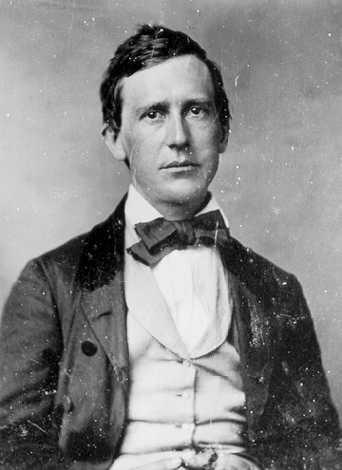Stephen Foster, Hard Times Come Again No More
 Each year as the Fourth of July approaches, I look for a Performance Pick that speaks to our American heritage. We’ve gone in many directions: Vieuxtemps’ variations on “Yankee Doodle,” works by Copland, Ives, Bill Monroe, and Arte Shaw. But I doubt there is any composer more quintessentially American than Stephen Foster.
Each year as the Fourth of July approaches, I look for a Performance Pick that speaks to our American heritage. We’ve gone in many directions: Vieuxtemps’ variations on “Yankee Doodle,” works by Copland, Ives, Bill Monroe, and Arte Shaw. But I doubt there is any composer more quintessentially American than Stephen Foster.
Foster was born on the Fourth of July in 1826 (the date on which both John Adams and Thomas Jefferson died). He grew up in the Lawrenceville section of of Pittsburg and received the kind of Classical education that would make Professor Carol proud.
Most of Foster’s 200 published songs are considered parlor songs (or popular “household” songs), which generally followed the then-popular style of Irish and British airs, e.g. “Beautiful Dreamer,” “My Old Kentucky Home,” and “Jeanie With the Light Brown Hair.” He produced some Civil War songs in support of the Union and wrote 21 hymns.
Today’s Performance Pick “Hard Times,” published in 1854, belongs in the category of parlor song and makes a call for us to remember the plight of the less fortunate.
Foster’s 28 Minstrel Songs (e.g. “Camptown Races” and “Oh! Susanna”) are a topic for another day. But I should note that our Professor Carol courses Exploring America’s Musical Heritage and America’s Artistic Legacy explore the history of minstrelsy in some detail and its lasting impact on American culture.
Many of Stephen Foster’s songs have become mainstays of American culture—virtual folk songs. They have been reworked and recast, and their relative simplicity makes them adaptable to many styles. Their importance might suggest that performances would be easier to find. It is not unusual to hear them as encore pieces at vocal concerts, and noted Lieder singer Thomas Hampson has recorded many of them (along with many other important American works).
But it was a long and mostly fruitless search that eventually led me to this powerful video performed by Gospel legend Mavis Staples. I am tempted to launch into a discussion of the Gospel style, but that too will have to wait for another day. Those who are curious can look here for some useful background on The Staple Singers.



